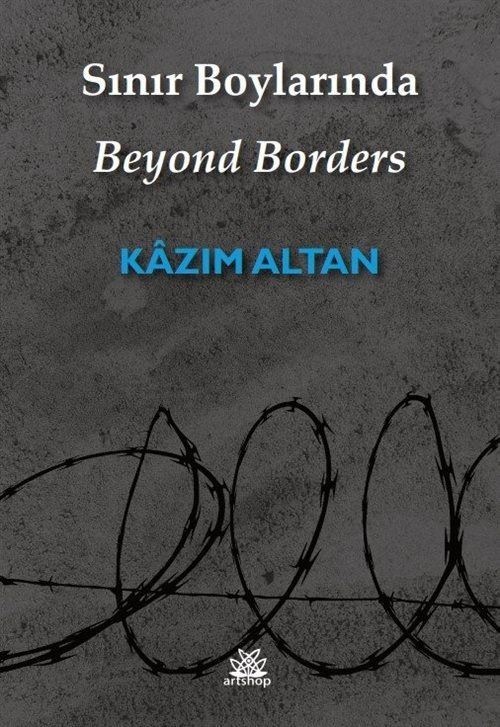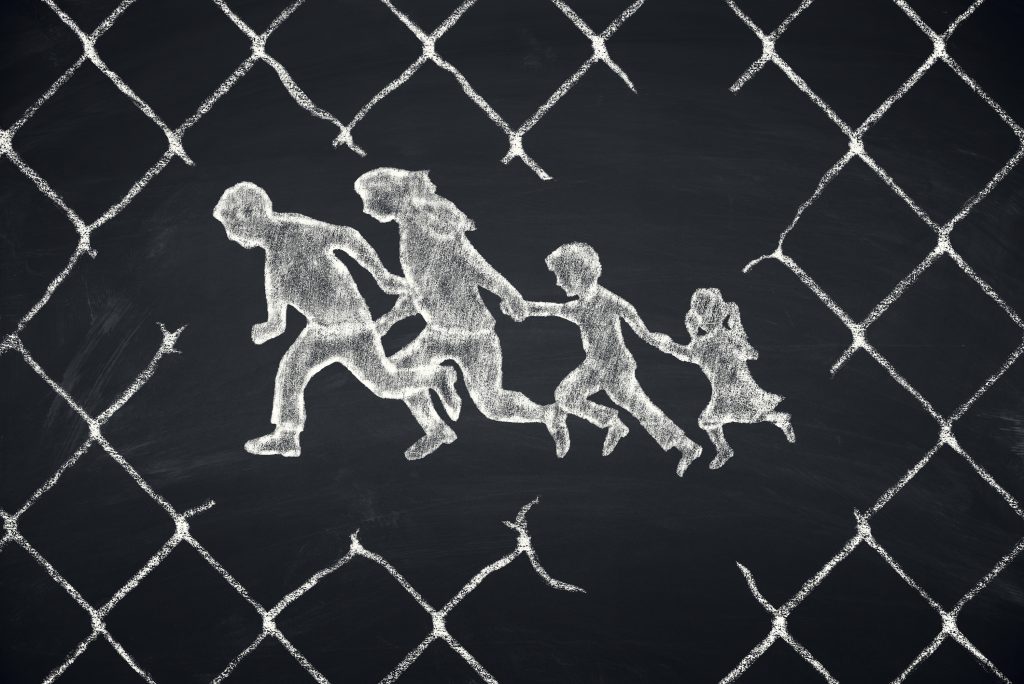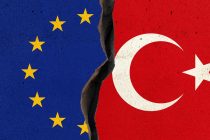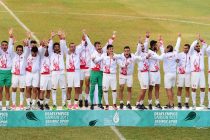The asylum bill introduced by the UK Government, in its current form, compels the Home Secretary to deny those refugees who arrive ‘irregularly’ access to the UK asylum system.
If the bill passes, and it may, these asylum seekers, rather than being provided with protection, would be subject to detention in the UK and — if the courts permit it — in Rwanda. They will be detained while arrangements are pursued to remove them to another country.
Fact 1: Most people fleeing war and persecution are unable to access the required passports and visas.
Fact 2: There are no safe and “legal” routes available to people seeking refuge from war zones or from persecution.
Fact 3: Denying refugees access to asylum because they have arrived ‘illegally’, undermines the very purpose for which the Refugee Convention was established in 1951.
The Convention explicitly recognises that refugees may be compelled to enter a country of asylum ‘irregularly’.
So, what is the British Government doing?
This legislation, if passed, would amount to an asylum ban. It will end the right to seek refuge in the UK for all who arrive ‘irregularly, no matter how genuine and compelling their claim may be.
With no consideration of their individual circumstances, they will be detained (imprisoned) and then sent back to their war-torn countries or another country willing to accept them, or, if the government wins the court case, to Rwanda.
The UK and the Refugee Convention
With this bill, many asylum-seekers in need of safety and protection would effectively be denied the opportunity to put forward their case. This would be a clear breach of the Refugee Convention and would undermine a longstanding, humanitarian tradition of which the British people are rightly proud.
It’s a fact that most people fleeing war and persecution are unable to access the required passports and visas.
There are no safe and “legal” routes available to them to claim asylum in Britain. Yet denying them access on this basis undermines the very purpose for which the Refugee Convention was established.
The Convention explicitly recognises that refugees may be compelled to enter a country of asylum irregularly and international law does not require refugees to claim asylum in the first country they reach.
Those who seek refuge in the UK often do so because they speak English or have relatives who live here.
Returns or transfers to a safe third country may be appropriate if certain conditions are met. In particular, if Refugee Convention rights are respected in the receiving country and if it helps share the responsibility for refugees equitably among nations.
The arrangements in place between EU member states is an example of such an agreement. Currently, the UK is not part of any such agreement. and Rwanda is unlikely to meet the international standards deemed necessary by the Refuge Convention.
Home Secretary Stella Braverman listens as Prime Minister Rishi Sunak speaks during a press conference following the launch of new legislation on migrant channel crossings at Downing Street on March 7, 2023
The UK Government claims to feel concerned about the number of asylum-seekers resorting to dangerous journeys, across the English Channel and elsewhere, such as the Aegean and the Mediterranean. İf this is their main motivation for prioritising this issue, then it should focus on improving the asylum system’s capability in the UK to tackle what has been identified as a challenge.
To do so, the government would need to put in place the following:
– A fast, fair and efficient case of processing
– Improved reception conditions
– Faster integration of those found to be refugees
– Swift return of those who have no legal basis to stay
It is the responsibility of all countries who sign up to the Refugee Convention to process applications swiftly. Safe, regular pathways for refugees to reach the UK is a pressing need. And yet, though critical, these remain limited.
Unlocking the economic potential of refugees by supporting their settlement is a gain for advanced industrialised countries whose work force capacity has shrunk while at the same time the aging population is on the increase. The UK currently has 1 million job vacancies it cannot fulfil.
The asylum bill lacks virtue and should never be supported to become law. Unless of course, the Tories are, to use their own term, ‘pushing the boundaries’, which would give it an excuse to exit the Refugee Convention and become a rogue state inclined to add to the suffering of people deemed highly vulnerable.
Punishing victims is not a solution and is unbecoming to British politics. The Government, all MPs and Peers are urged to pursue more humane and practical policy solutions including tackling the urgent issue of people trafficking, which is exploitative and dangerous to desperate men, women, children and infants.
I shall close by quoting from my recent book of plays, ‘Sınır Boylarında – Beyond Borders’, in which Omar and Nasreen describe their lives beyond the borders of their war-torn countries. To imagine these lives is painful, yet to live them must be like being in hell.
***
Extracts from Sınır Boylarinda – Beyond Borders by K. Altan
Abdullah is on stage. Behind him, his ruined house is reflected. He sits looking at a photograph and does not speak until the stage darkens and the spotlight is on him.
Abdullah: They had a teddy bear, my little boys. The teddy bear in its pink dress, was in the picture that covered front pages. Thousands drowned in the Aegean, but they made the headlines. I no longer wished to travel to Europe, to Canada, escape the bloody war in Syria.
We’d left Kobani under siege. I returned to it to bury my family. It didn’t matter that our house was no more, that the city we’d lived in was in ruins.
He is silent for a while, as he looks at the photograph which he then puts in his pocket. 
A statesperson telephoned to commiserate. He said we would have been welcome to stay in his country.
“I wish you had,” he said. I might have felt moved by this gesture if he hadn’t done it before a host of TV cameras.
He smiles bitterly. The stage darkens.
Music from Sabahat Akkiraz’s ‘Haydar Haydar’ plays for a few seconds.
The lights come on slowly. Abdullah is standing, barely visible. Then the stage darkens, and he is spotlighted. He carries a bag and has a blanket thrown over his shoulders. He walks in a circle as he talks and, just before he says ‘we sit and wait’, sits on a rock and faces the audience. Several other refugees mill around the stage.
Abdullah: I am on the move again.
Locked out on the wrong side of the fences, we march along the borders, winter in tents, huddle in second-hand blankets for warmth, wear ill-fitting clothes, different coloured socks on each foot, courtesy of… and… Wait.
He smiles bitterly.
This is Europe and We are welcomed with open arms!
Abdullah exits.
Black out.
***
Abdullah: Thank you, Nasreen, you are very kind. And yes, please join me. I’m sure you’re tired after serving so many meals.
He sits on a log used as a bench and waits for Nasreen, who potters around the serving table for a while. She serves one or two people with what’s left of the soup, says sorry to the last one and shares half of hers then she joins Abdullah, carrying a bowl of soup for herself.
Nasreen to the first refugee: I am sorry. There isn’t much left now. I’ll share what there is between you.
Then to the woman who arrives last: It’s all gone now, I am sorry…
The woman turns to walk away.
Nasreen: Wait… I have put aside some for myself… Here let’s share it.
She pours some into the woman’s mug who bows her head and, at the same time, puts her right hand to the left of her chest and whispers the word “shukran”.
Nasreen potters about for a few more seconds, then picks up her tin mug and walks across the stage to join Abdullah.
Abdullah gestures: Please sit here…
Pause.
Like this… We shall eat together, like a family.
Pause.
Eating alone isn’t fun.
Nasreen: I know…
Both eat quietly for a bit.
Nasreen: We used to eat all together in our kitchen, my husband, I and our children. We were not rich, but comfortable… until a bomb destroyed our home. All my family, everything and everyone gone… except me. I didn’t understand. Why? …
We had nothing to do with politics or anything… I still don’t understand. Will ‘they’ ever realise the price we pay… And for what? What is gained?
Pause.
Nasreen: I could not stay there. I left soon afterwards, wandered aimlessly, slept when and where I was offered a bed. Eventually, I found myself in this ‘jungle’, as they call it. Alone, desolate. Yet, seeing all these people here, homeless like me, I understood I was not so alone.
I thought that I could perhaps find some purpose here… by helping others. I could do something… cook food, serve it… listen to people’s stories. I tell you, there’s a book of stories in every one of them. It helps me deal with my own grief.
Pause.
You, and all these other poor, lost people are my family now. We have come from different places, different communities, yet we all share the same grief. So, we make do, share food, our experiences, talk about the homes and family we have lost. Who knows what the future holds for any of us! Kismet, as we say in our culture.
***
Nasreen: What do you know of this journey across the channel that people are talking about, Abdullah? Do you think it’s safe?
I feel better now, after these many months here. I feel stronger somehow… I feel I have found a home in this new community. Only tents and shacks, I know, but we look out for each other, share our food.
Pause.
Nasreen: This journey people speak of surely will bring a better future. We must live and hope. I don’t have much money, but maybe it’s worth buying a ticket.
Abdullah is thoughtful: I’m not so sure. It’s a dangerous journey, on a flimsy dinghy, across a violent sea.
Remains silent for a bit.
Abdullah: No, I think things have got to change…here. It’s not right… All these children… all these young people… what is their future?
Each one of them could contribute to the well-being of any society. Yet, they grow up in this wild place with the false hope that one day, maybe one day, they will cross that channel, be received with open arms, and start a new life!
Takes a deep breath
Yet what they are learning here, in this ‘jungle’, is how to survive. And survival means looking out for others, sharing what they have. They can be the nucleus, the seed, of a different, a fairer system.
Imagine if this were a state and they had power. They could transform the world.
Nasreen: Oh absolutely, Abdullah. And big things grow from small beginnings. And what I know is that when we support each other and work together things are better.
Abdullah: Exactly so.
They eat quietly for a while. Then Nasreen rises, massaging her knees.
Nasreen: I’d better start clearing up. I am sorry it is almost always the same food… But I notice how people from the same countries find one another, and at mealtimes they each bring a dish to share … That is so good to see…
Rubs her knees again.
Nasreen: Oh… my knees. I think I’ll be off to buy that ticket! Not that I have much money to spare but maybe, just maybe, my luck will change. Who knows! On the other side of these furious waves, I may find a roof to cover my head, a warm bed to sleep in. I live in hope.
Abdullah: We are all wondering about that ticket to a better life across the channel. But it’s nonsense, you know. They will only put us on a plane with a one-way ticket to Rwanda. Save your money. It’s all a con. A journey on a dingy, at night, across a rough sea…
What nonsense! A nightmare more likely, a death sentence! How many of us even know how to swim, for god’s sake? Don’t waste your money… more importantly… don’t waste your hope on crossing that channel.
We will need it for that long overdue change! And take care of that knee. It’s the cold. It seeps into our bones.
Nasreen: But Abdullah, I can’t stop hoping.
Suddenly she becomes angry
Anyway, I can work these things out for myself!
Abdullah: Then I wish you good luck, Nasreen! Make sure that the lifejacket they give you actually works before you board the boat… These men are ruthless.
He picks up his bag, preparing to leave. Nasreen sings the last verse of her song as she clears up a few things from the serving table.
The lights dim.
This article was penned by author Kazım Altan.
Main picture, top, an illustration of refugees fleeing, with razor-sharp barbed wire by altmodern / iStock




